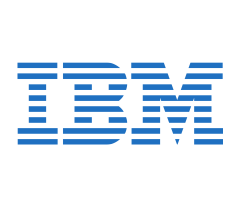The International Business Machines Corporation (IBM) is a multinational company operating in 170 countries. It produces and sells computer hardware, middleware, and software and related services. Products and services can be further broken down into cloud computing, artificial intelligence (AI), commerce, data and analytics, Internet of Things (IoT), IT infrastructure, mobile, and security. Research and development is a core part of the organisation. IBM’s Policy Lab has chosen emerging technologies as one of its key issues.
ARTIFICIAL INTELLIGENCE
IBM works on various aspects of AI. It develops technology that can be used in diplomatic practice, foreign policy, and the defence sector. Digital assistants, knowledge management tools, and natural language processing tools, such as IBM Watson are particularly important in this regard. In addition, hopes have risen that IBM Watson and similar services can be tailored to help in the prediction of conflicts and crisis situations. The German and Australian ministries of defence are reported to have worked with IBM on relevant software. IBM reports working on data analytics with the US marines, the Swedish armed forces, and NATO.
IBM also develops technology that can be used in the context of autonomous weapons. However, in 2015 IBM executives joined a call to ban lethal autonomous weapons systems (LAWS). Facial recognition technology (FRT) is also part of IBM’s portfolio. It provides technology to the US military and likely also to law enforcement agencies (LEAs). In 2019, the company started supporting so-called precision regulation for FRT. For example, it calls for finding a reasonable balance between civil liberties and the needs of LEAs and for the need for consent before using FRT to authenticate the identity of a person. IBM further actively supports the development of an ethical framework for AI, and in 2020 it joined the Rome Call for AI Ethics.
QUANTUM COMPUTING
IBM is very active in research and development in the area of quantum computing. It provides regular updates on its research blog and a number of educational resources. IBM has a network of companies, academic institutions, and research labs called IBM Q Network. In a recent paper, IBM argues that Google has not, in fact achieved ‘quantum supremacy’ with its 2019 breakthrough.
INTERNET OF THINGS
IBM is very active in research and development in IoT applications. It works in the areas of industrial equipment (delivering insights to reduce downtime), smart vehicles, smart buildings (operation and occupant experience), enterprise asset management, and systems engineering. IBM also supplies IoT solutions to governments. Examples include work with the US army on logistics and vehicle health and with the Port of Rotterdam Authority to develop a smart port. IBM is also concerned with IoT security, including the assessment of the security of an IoT environment.
ARTIFICIAL INTELLIGENCE
- Advocates for AI policies and ethical standards that balance various interests while allowing for research and application.
QUANTUM COMPUTING
- Wants to achieve quantum supremacy (thus supporting the USA’s efforts in becoming a leader in quantum computing).
INTERNET OF THINGS
- Seeks to advance IoT-related research and development.
